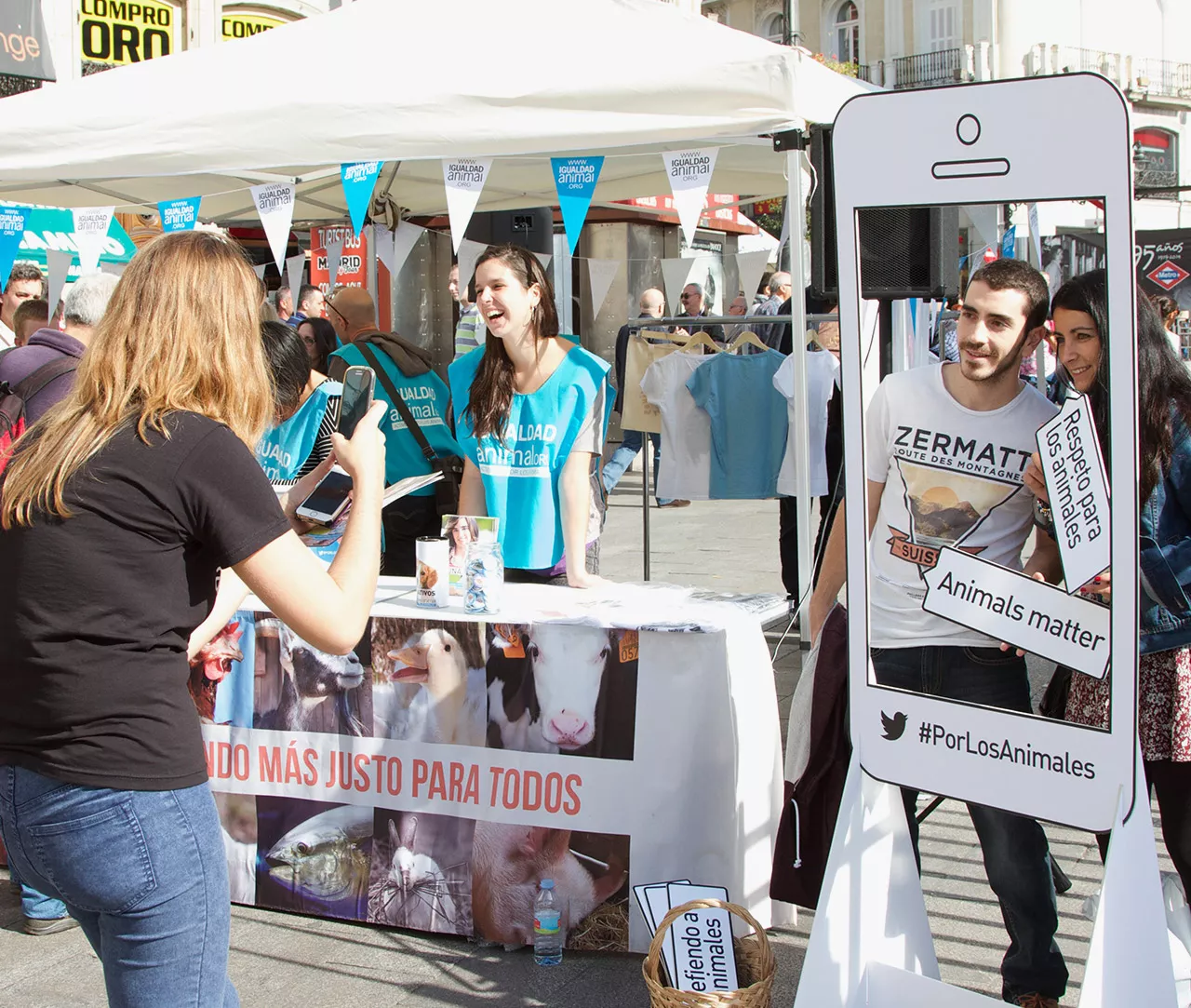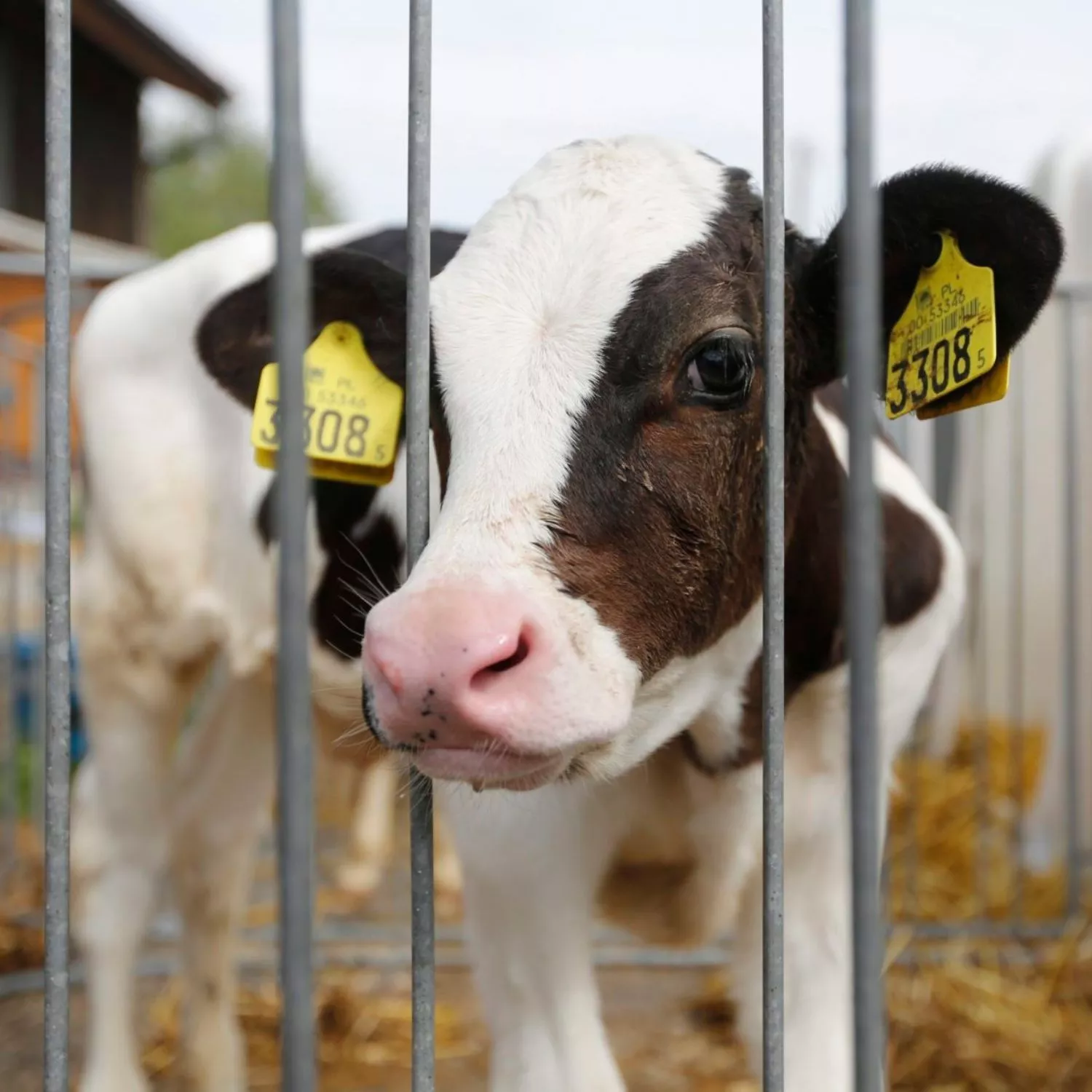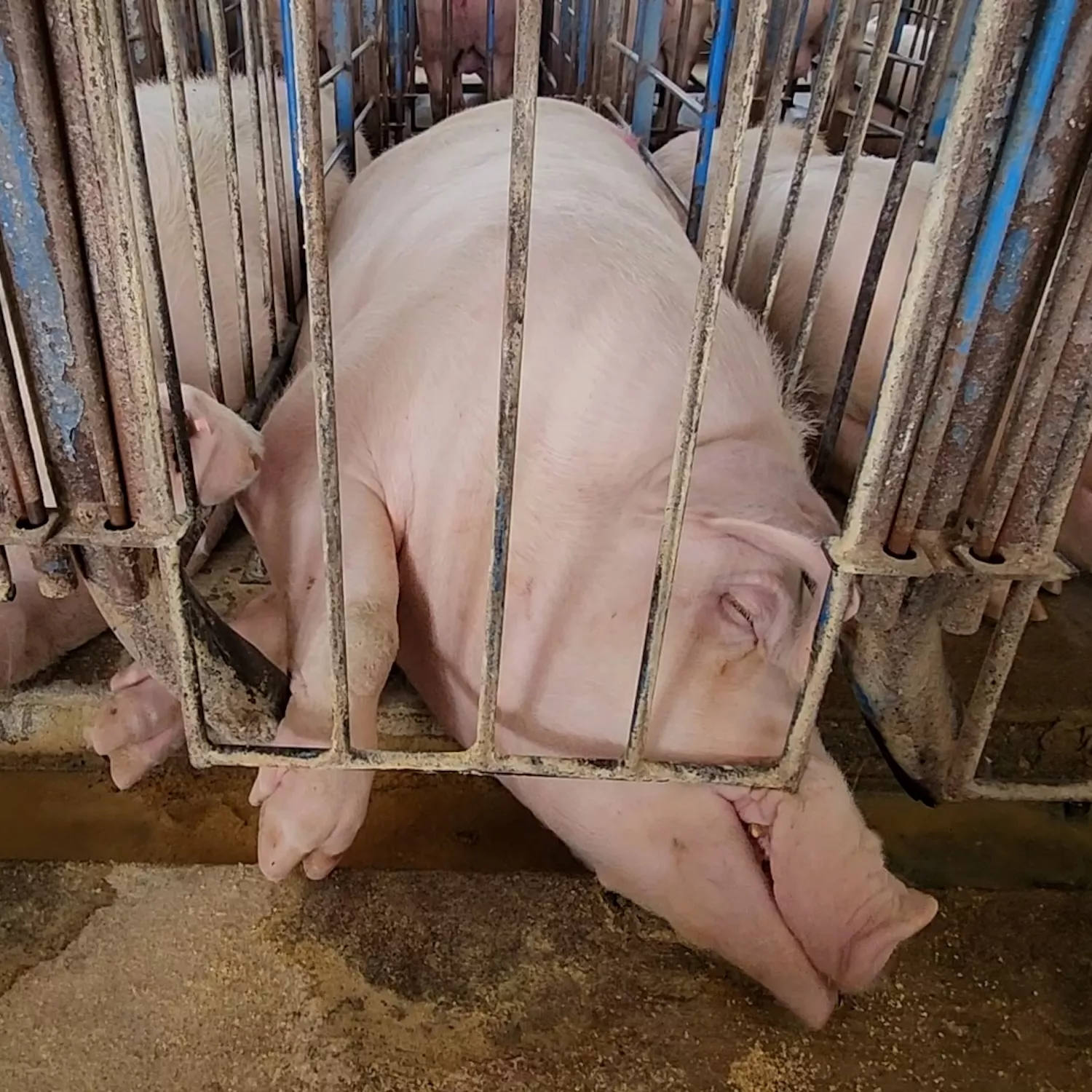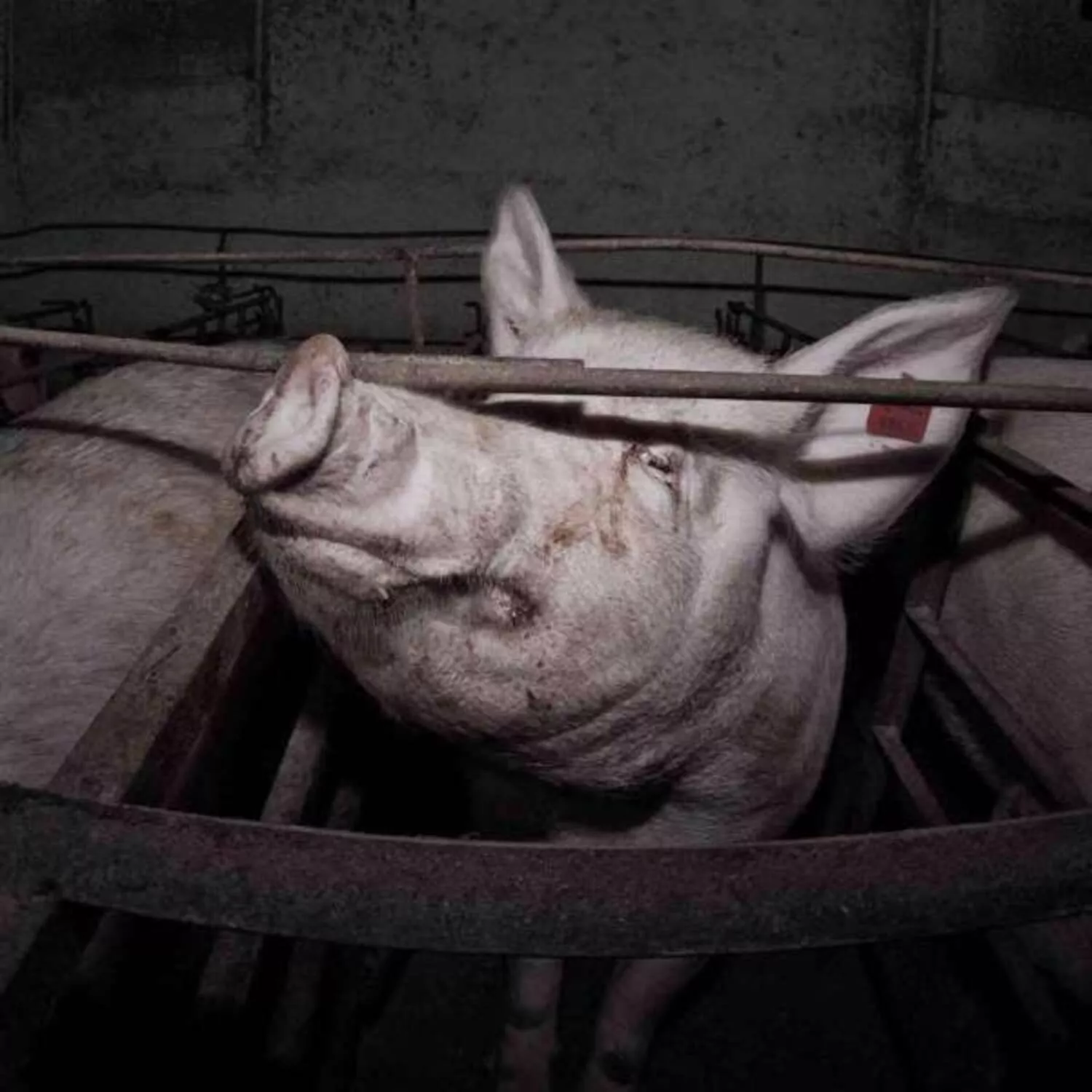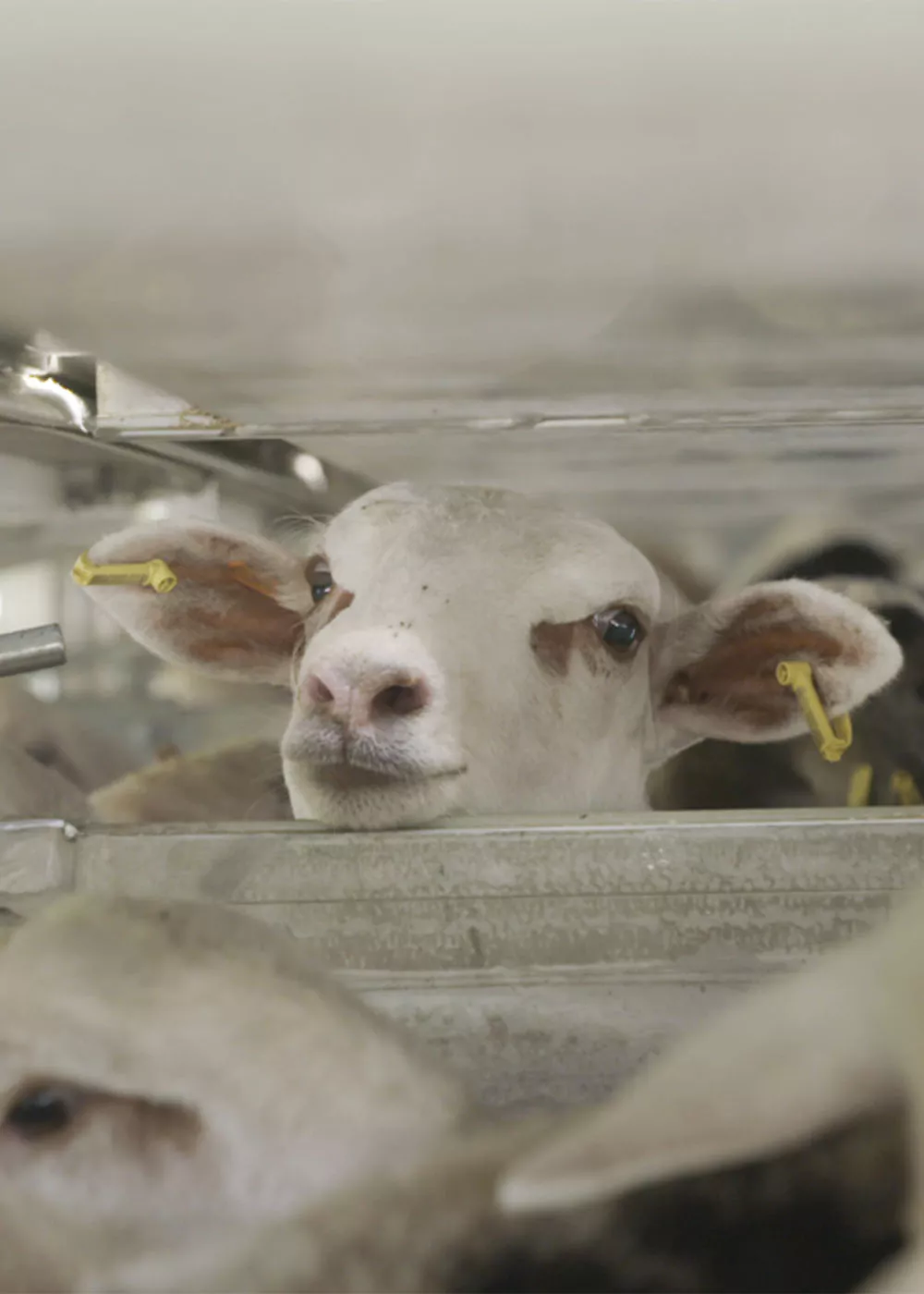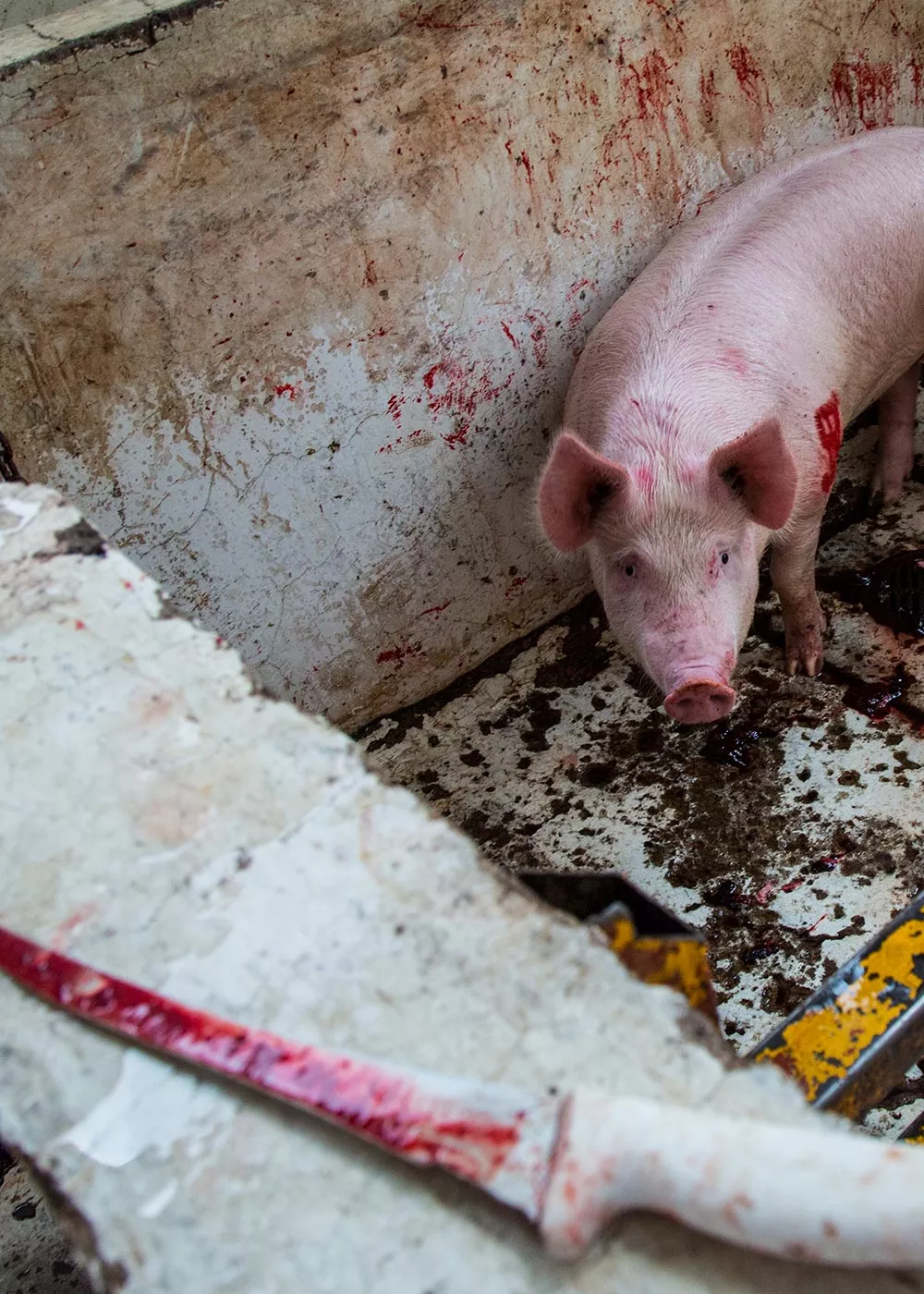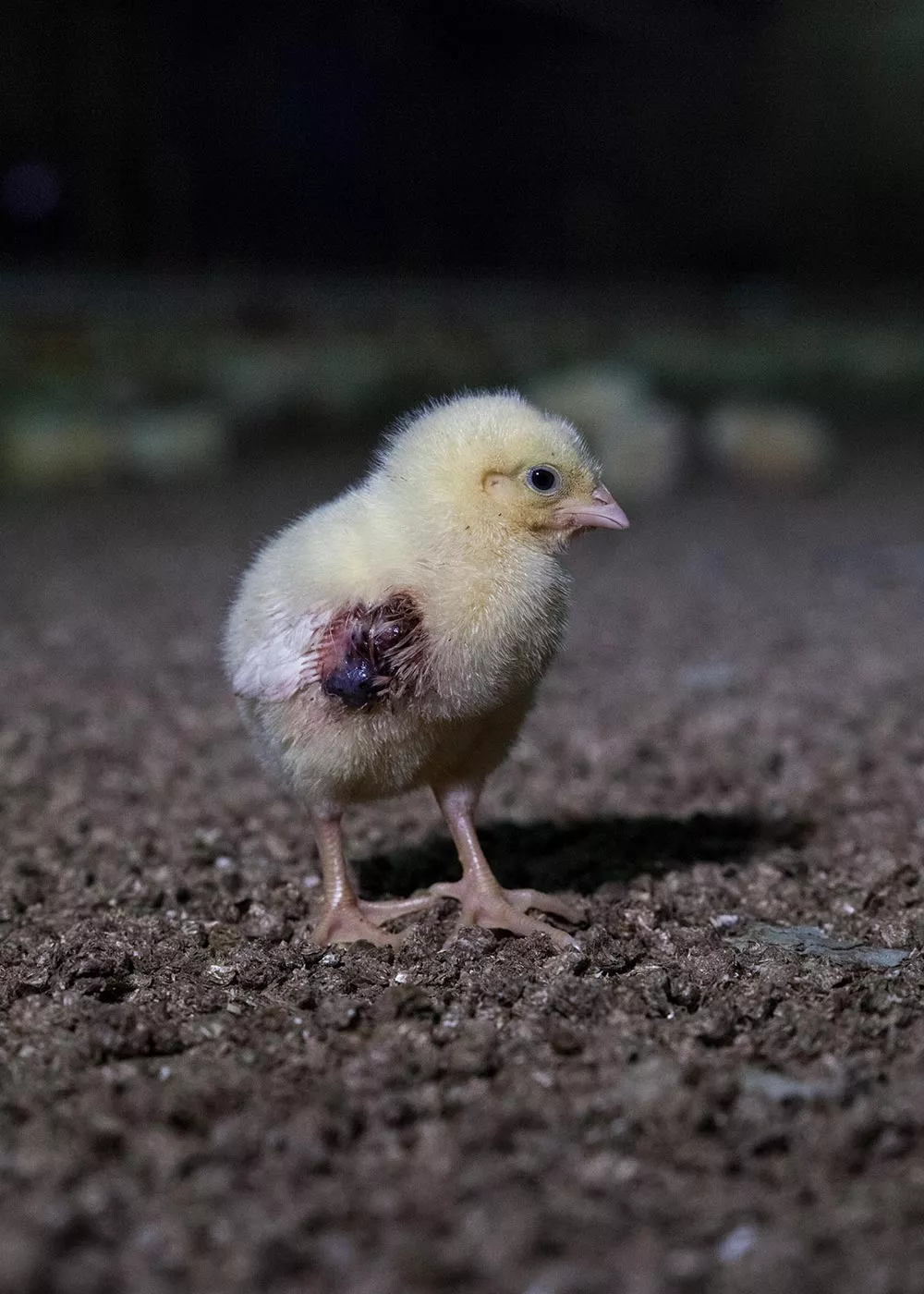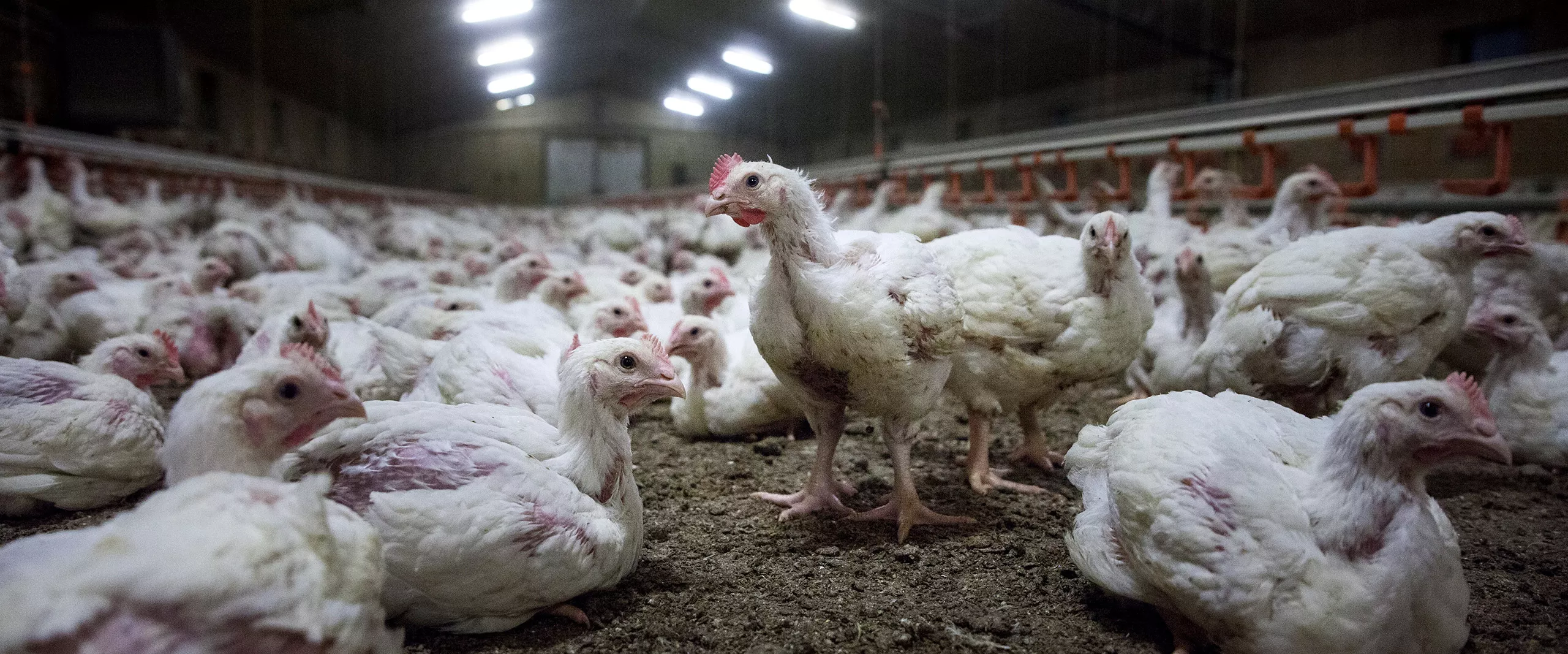
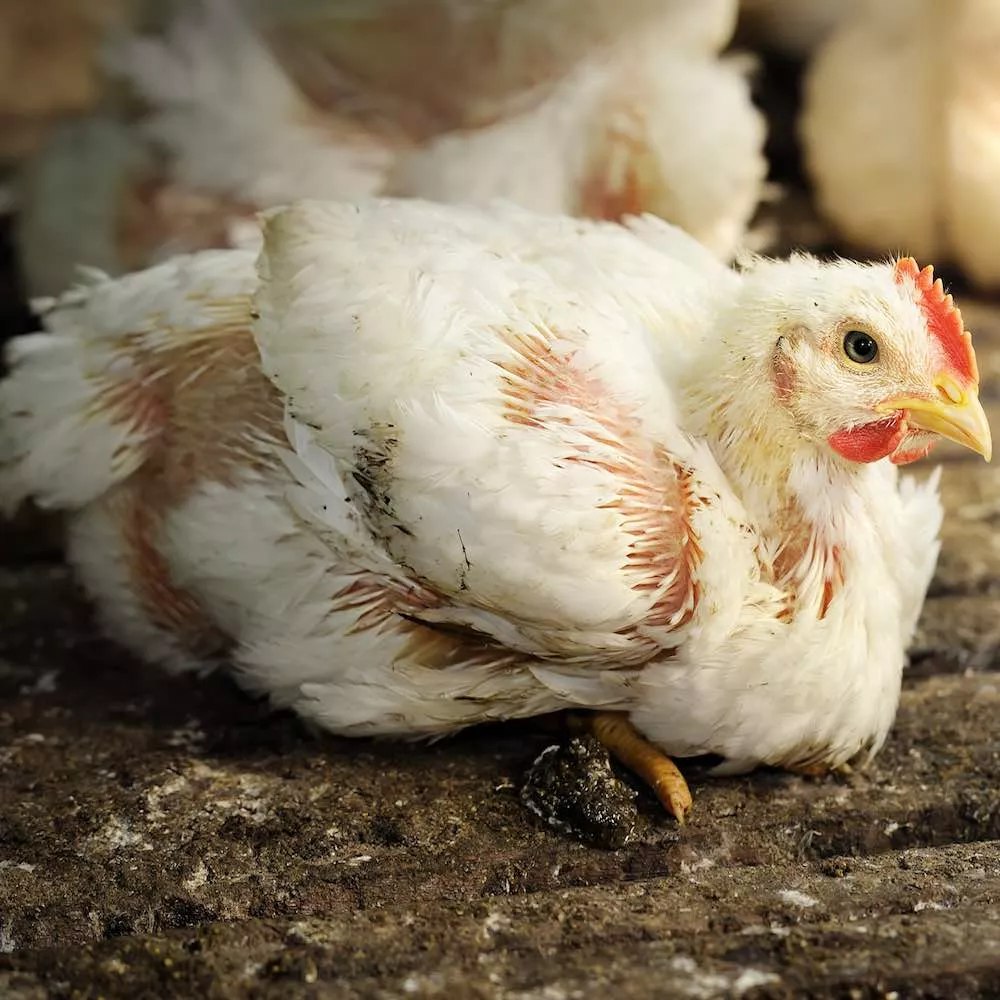
THE MEAT INDUSTRY
Animals killed for their meat begin suffering the day they are born. Animal Equality works to end this cruelty.
ANIMALS KILLED FOR MEAT
Cows, pigs, chickens, fish, and other animals raised for food have little legal protection from cruelty. Although they are capable of thinking and feeling and want to enjoy their lives, they linger in misery on factory farms all around the world.
Cows
Cows and bulls raised for meat are socially complex animals who develop friendships and experience pain, fear, and anxiety when beaten or separated from their herd.
Painful mutilations are common in the industry: Farmers cut off or burn their horns and castrate male calves. All of this cruelty occurs before they even reach the slaughterhouse.
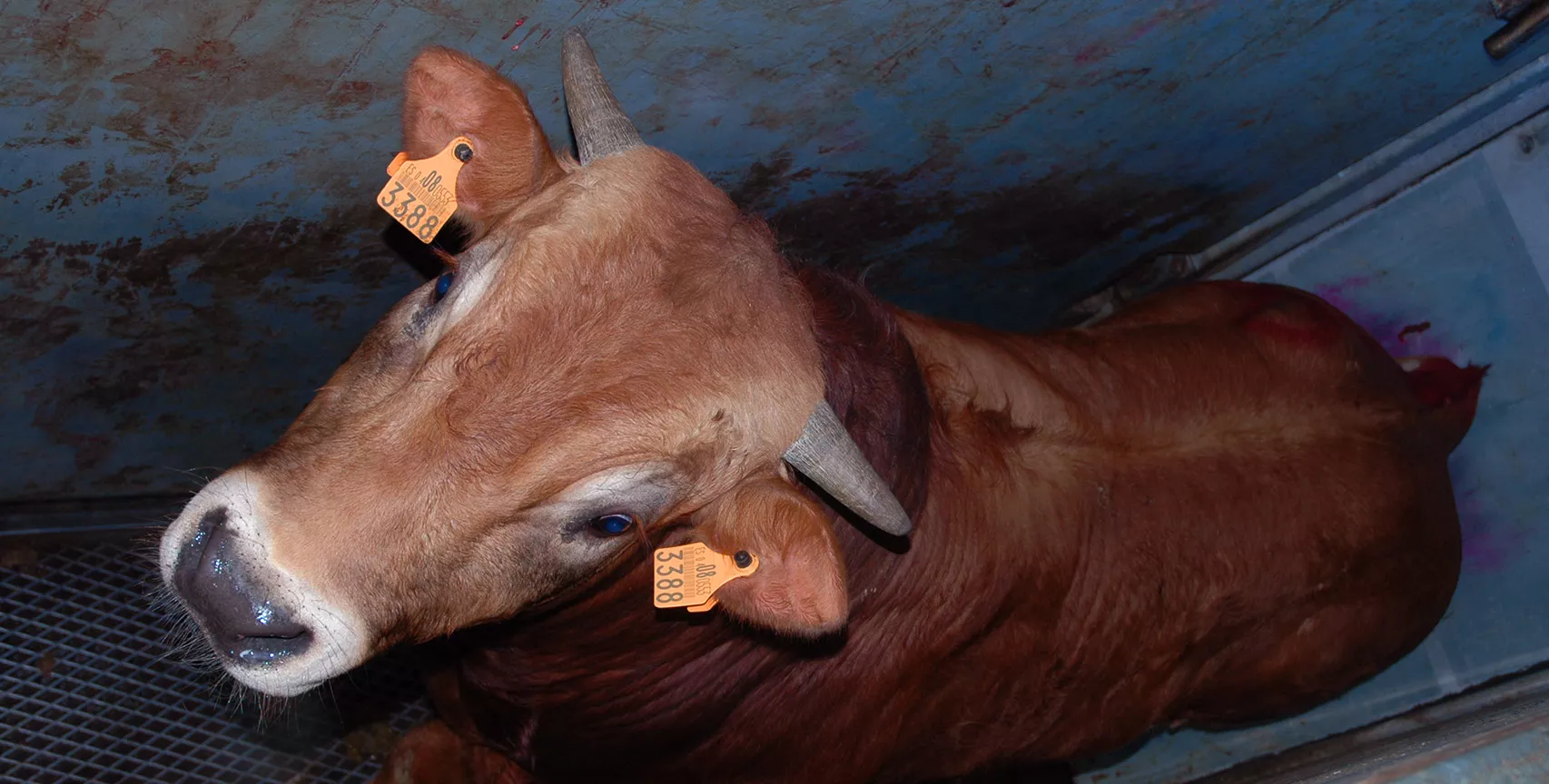
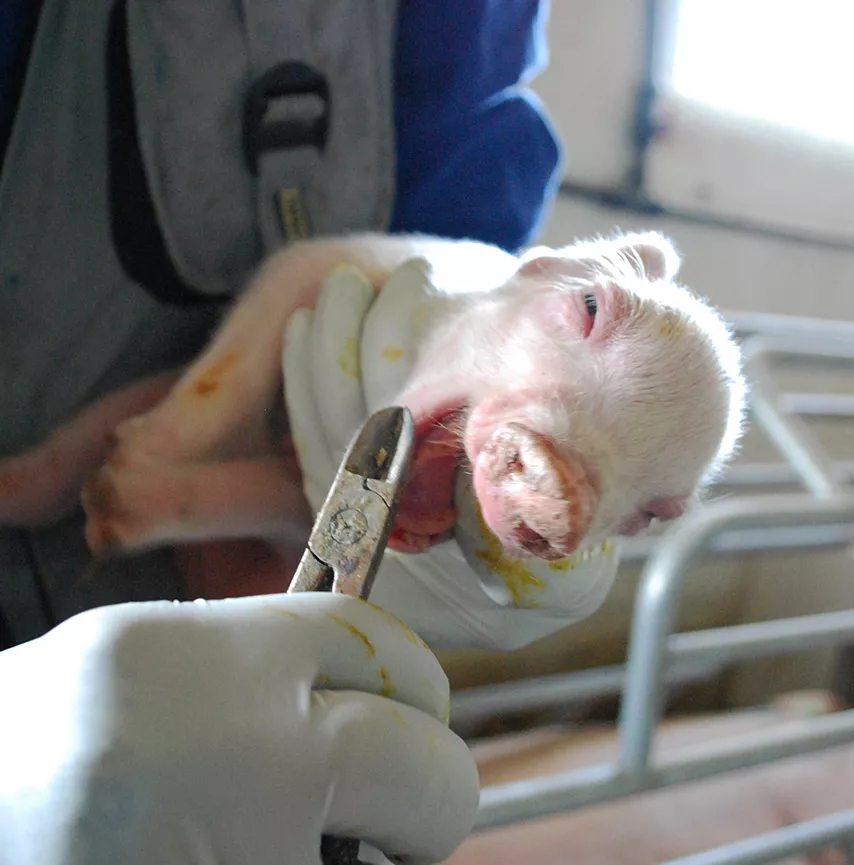
Pigs
Did you know that pigs are considered to be smarter than dogs? Yet factory farms confine them in cramped warehouses where they will never see the sunlight or breathe fresh air.
Perhaps those who suffer the most are the females. They are forcibly impregnated throughout their lives and give birth inside a tiny metal crate, so small they can’t even turn around and are unable to nurture their piglets.
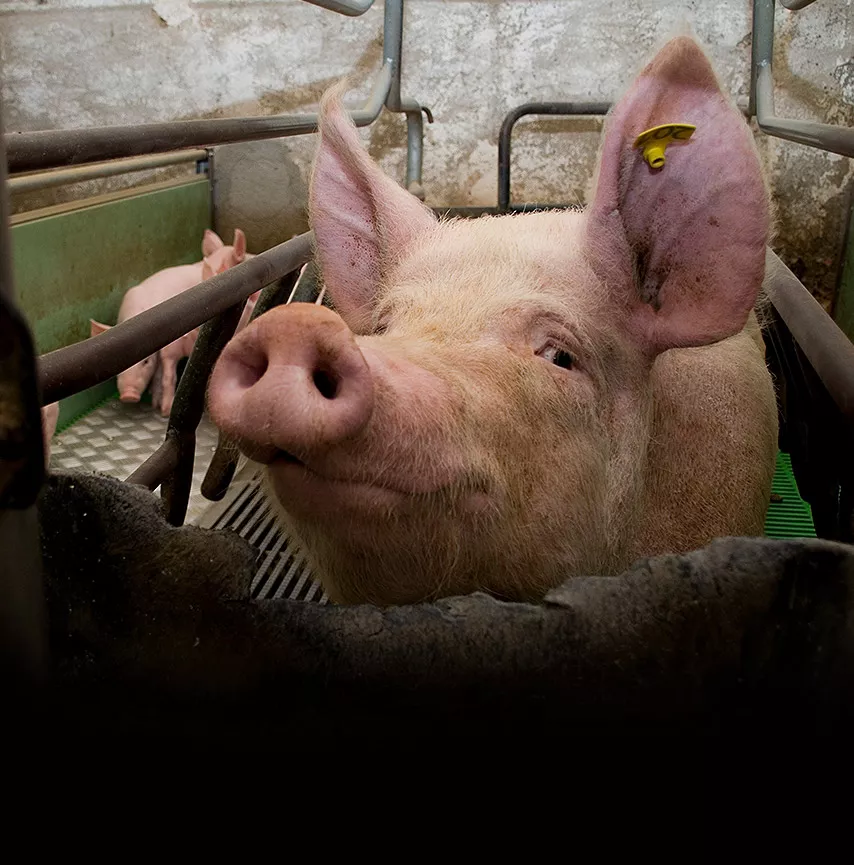
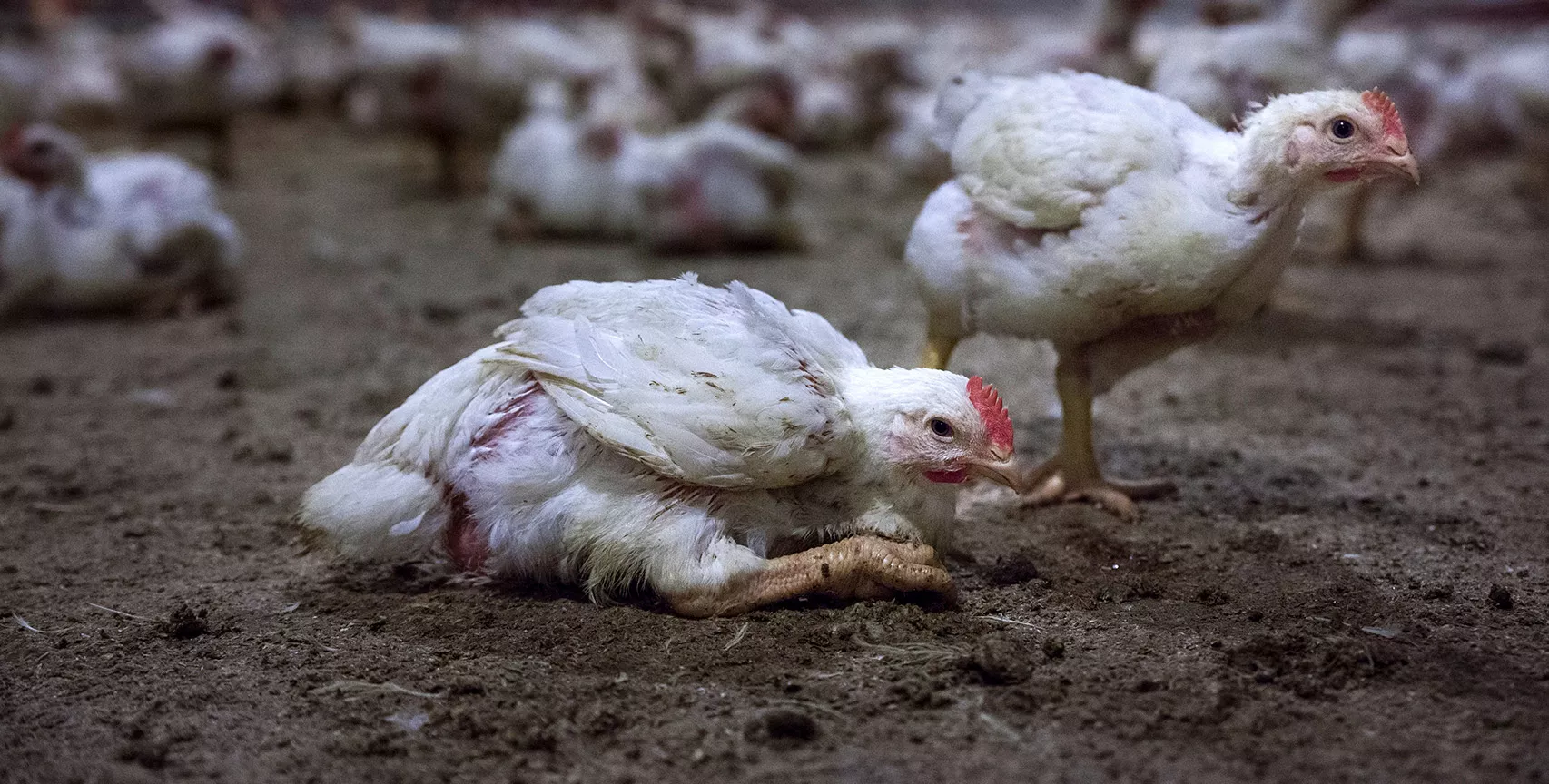
Chickens
Chickens are the most abused land animals on the planet. More chickens are raised and killed for food than all pigs, cows, and lambs.
Chickens spend their entire lives in filthy sheds with thousands of other birds. They are bred to grow so large so quickly that their legs and organs cannot keep up, making heart attacks, organ failure, and crippling leg deformities common.
Those who survive this miserable existence will typically be slaughtered at just 42 days old.
Lambs
Like other farmed animals, lambs are raised in filthy factory farms, subjected to cruel mutilations, and horrifically slaughtered. Lambs are usually “tail docked” just a few weeks after birth. Farmers claim this reduces the buildup of fecal matter around the animals’ backsides. However, this cruel and painful mutilation is performed without anesthetics and often leads to infection, chronic pain, and rectal prolapse.
Mother sheep are deeply caring and form strong bonds with their babies. Sadly, this bond is broken at factory farms, where lambs are ripped away from their mothers just a few days after birth.
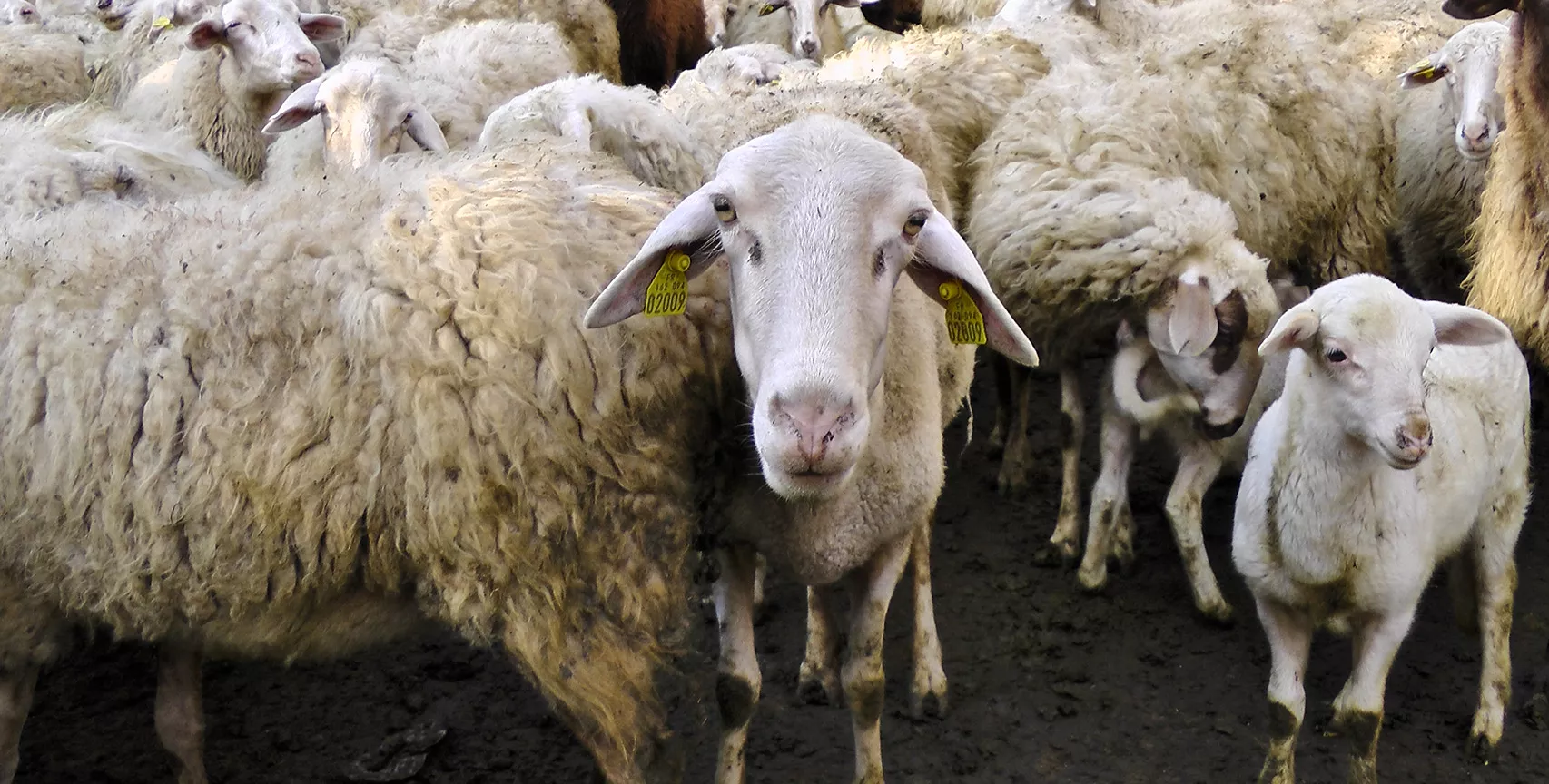
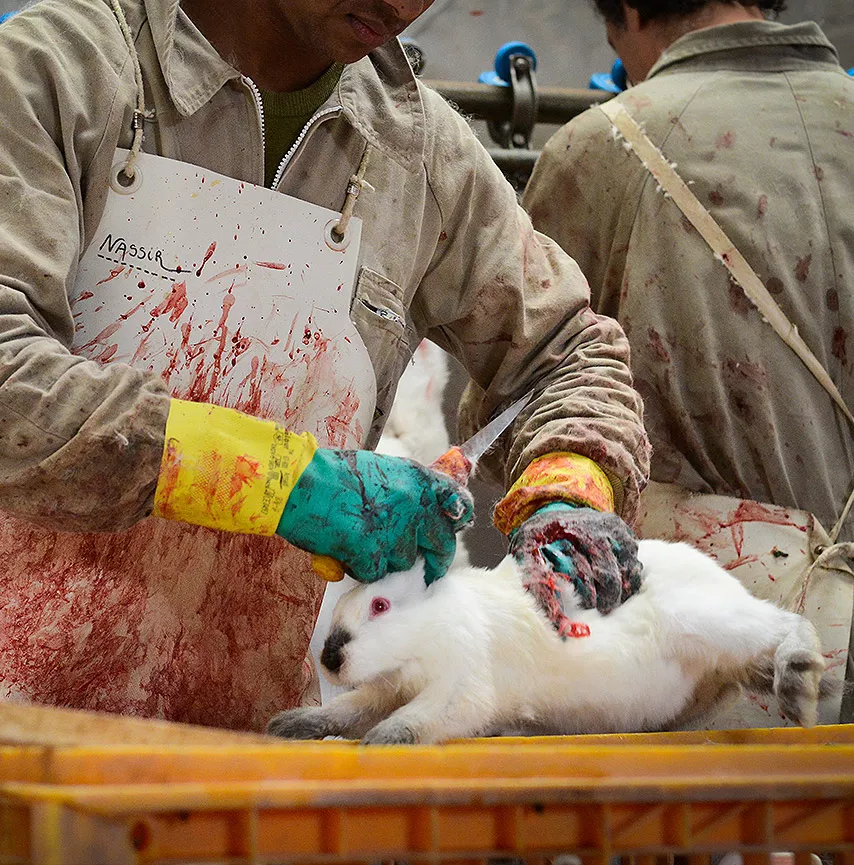
Rabbits
Like chickens, rabbits are not protected under the USDA Humane Methods of Slaughter Act, which means they have zero legal protections during slaughter.
Rabbits are typically struck in the face with blunt objects in an attempt to knock them unconscious. However, this method is not successful for many of the rabbits, who struggle and squirm as workers snap their back legs — breaking their bones in order to hang the rabbits upside down more easily — and then slice open their throats.
Left photo: Jo-Anne McArthur / Animal Equality
Right photo: Animal Equality
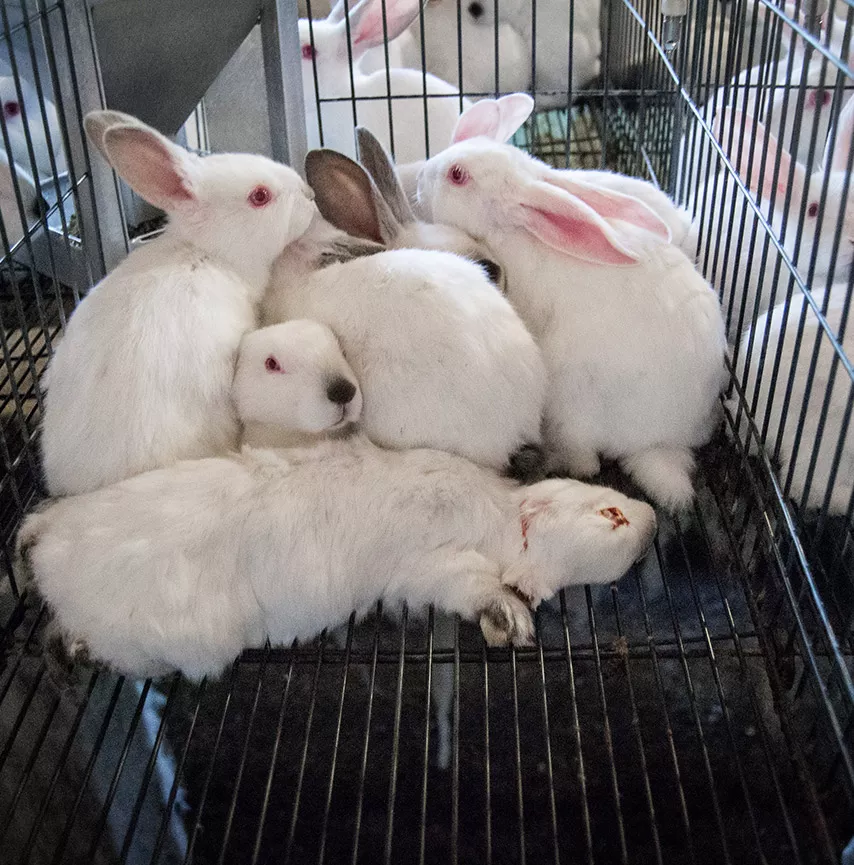
Turkeys
Nearly 300 million turkeys are slaughtered in the U.S. each year—with over 50 million killed just for Thanksgiving—typically at just 4–6 months of age. The final hours of their lives are full of unspeakable cruelty, with more than a million of them dying during crating and transport.
Nearly 1 million turkeys are unintentionally boiled alive every year in U.S. slaughterhouses, where fast-moving lines often fail to kill the birds before they are dropped into the scalding tank. All of this cruelty, despite turkeys being sensitive and intelligent animals who form strong family bonds and even enjoy the company of humans.
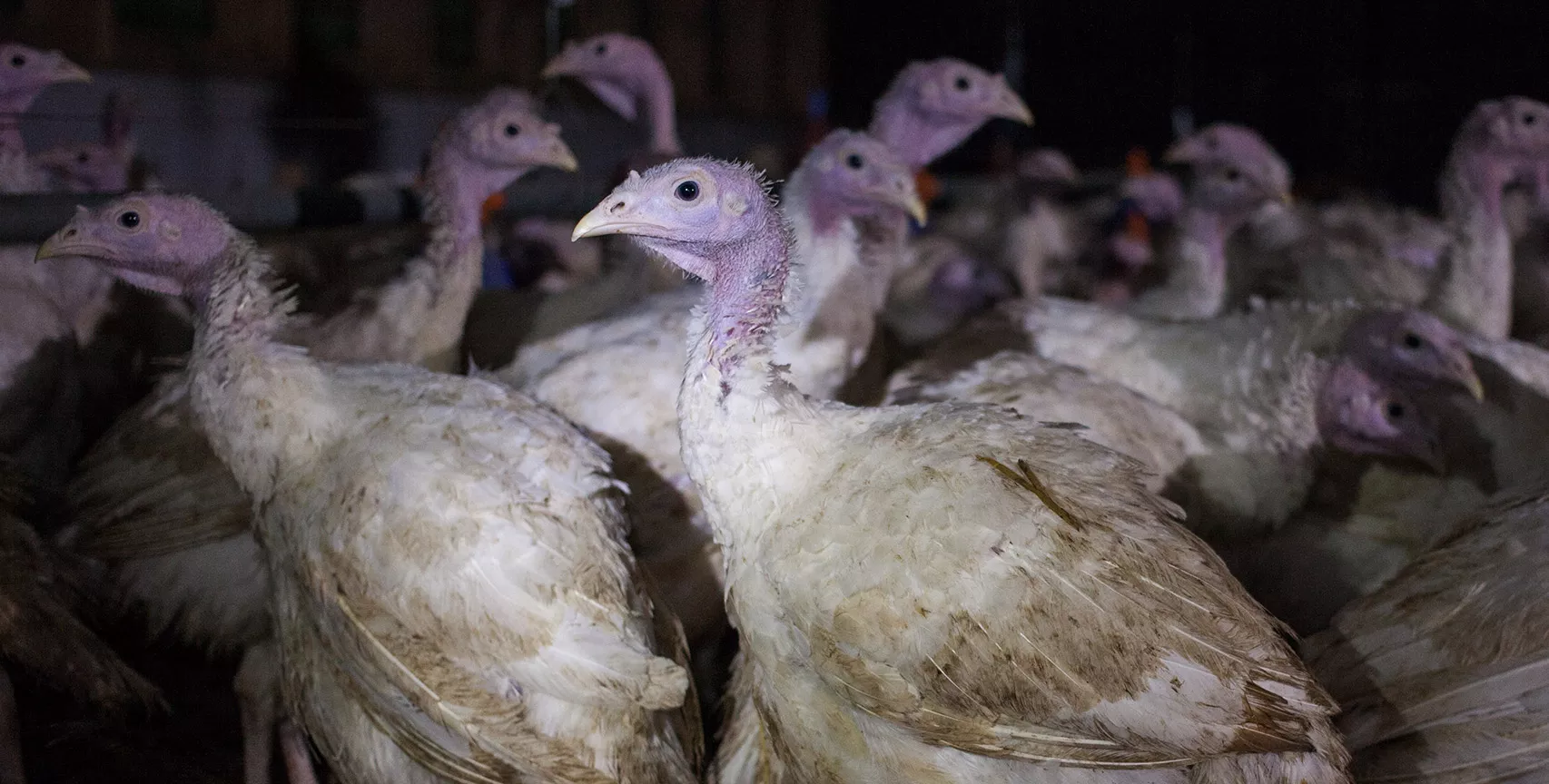
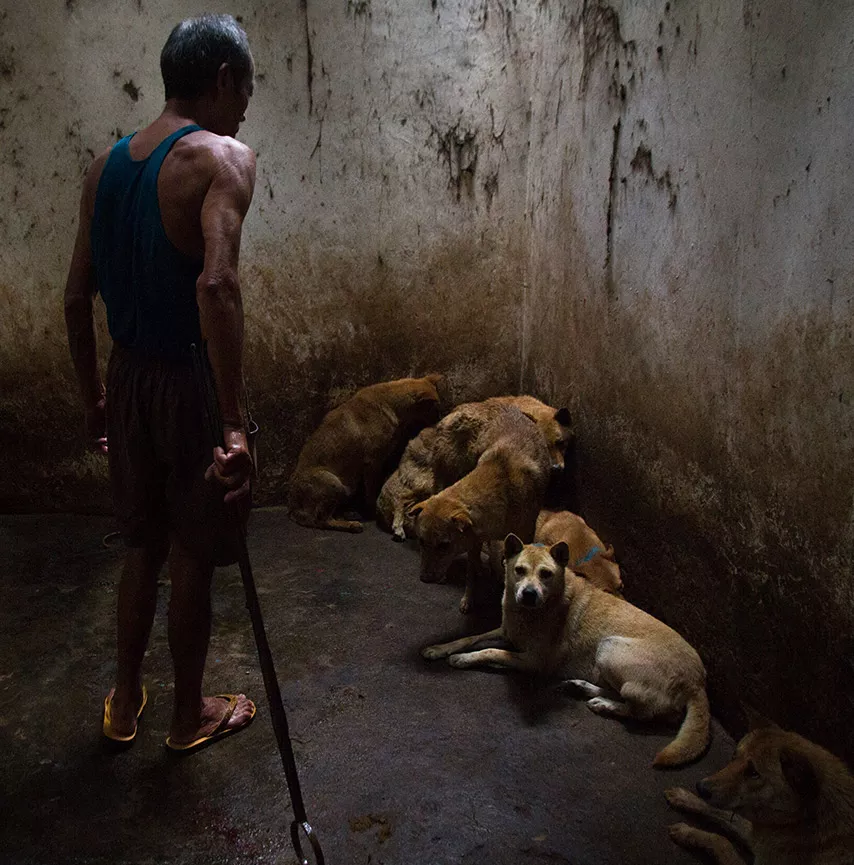
Dogs
In Korea and China, dogs are considered farmed animals like cows, pigs, chickens, and other animals in the United States. Many are taken from the streets, while others are farmed in deplorable conditions.
Dogs are crammed into tiny wire cages so small they can’t move. Others are kept in barren pens full of dogs with varying temperaments. In conditions such as these, dogs are afforded zero legal protections and suffer from extreme cruelty and abuse at the hands of workers.
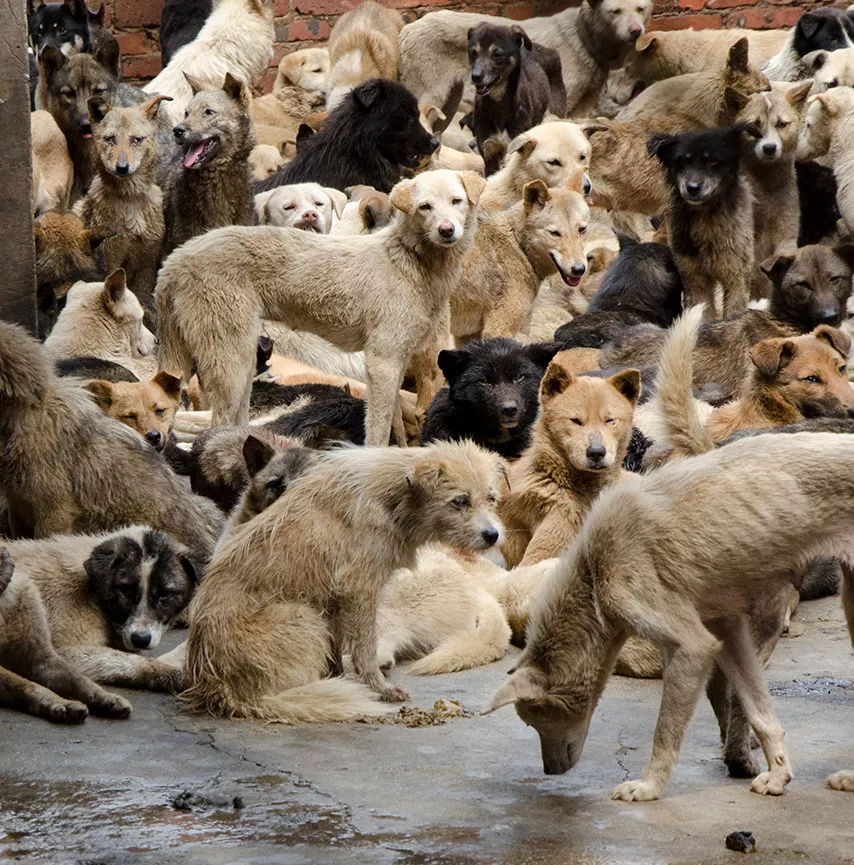
TAKE ACTION FOR ANIMALS
Voters passed Prop 12 to keep animals out of cages. Factory farms sued and lost at the Supreme Court. Now, lobbyists are back with the “Save Our Bacon Act,” a corporate power grab that would erase the most basic protections for animals, silence voters, and force cruel products back into stores.
Tell lawmakers: Defend the most basic protections for animals.
meat, BY THE NUMBERS
BEYOND THE CRUELTY
The meat industry also has devastating effects on our planet and takes a toll on our health.
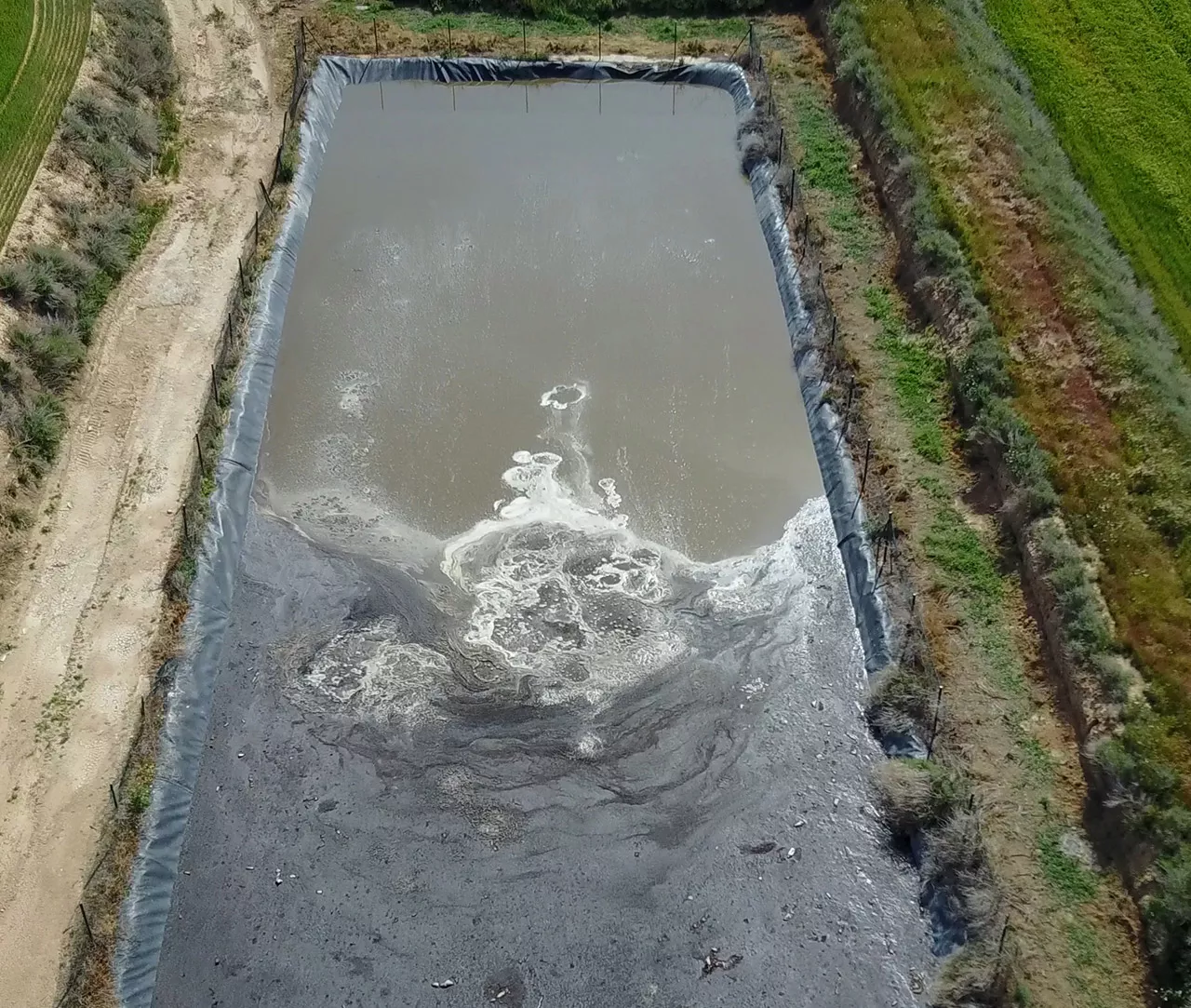
MEAT AND THE ENVIRONMENT
Raising animals for food requires massive amounts of land, food, energy, and water and causes severe environmental damage.
According to the United Nations Food and Agriculture Organization (FAO), the world needs to shift away from a diet of animal products to combat the worst effects of climate change. For example, the FAO reports livestock factory farming contributes to almost 15 percent of global greenhouse gas emissions.
Factory farms also use an enormous amount of water. It’s used to grow crops for animals to eat, clean filthy factory farms, and give animals water to drink. Yet, the industry has polluted over 35,000 miles of waterways in the United States.
A risk to your health
Consuming animal products, including meat, puts you at an increased risk of several serious health conditions.
The World Health Organization recently declared processed meat a carcinogen that increases your risk of colon or rectum cancer by 18 percent.
Animal products contain saturated fats, which contribute to America’s top killers: heart attacks, strokes, diabetes, and various types of cancer. Decades of scientific studies have linked saturated fat to cardiovascular disease – our country’s number-one cause of death, killing nearly 2,200 people every day.
In large part, because of the increased health risks, people who consume meat don’t live as long as vegetarians and vegans. According to a study at Loma Linda University, of over 76,000 people, vegetarians were 12 percent less likely to have died during a six-year follow-up period than those who consumed meat.

RELEVANT CAMPAIGNS
Factory farms are secretive places. They work hard to conceal from the public the reality that farmed animals face. That is why Animal Equality works so hard to expose the cruelty inside and end it.
ACHIEVEMENTS
Through investigations and the support of people like you, Animal Equality has won numerous successes for farmed animals around the world.
Italy
Save a lamb
In Italy, Animal Equality’s Save a Lamb campaign aimed to reduce the consumption of lambs during the Easter holiday.
The campaign has resulted in a 50% decrease in the number of people consuming lamb meat, with an additional decrease of 10% within the last year.
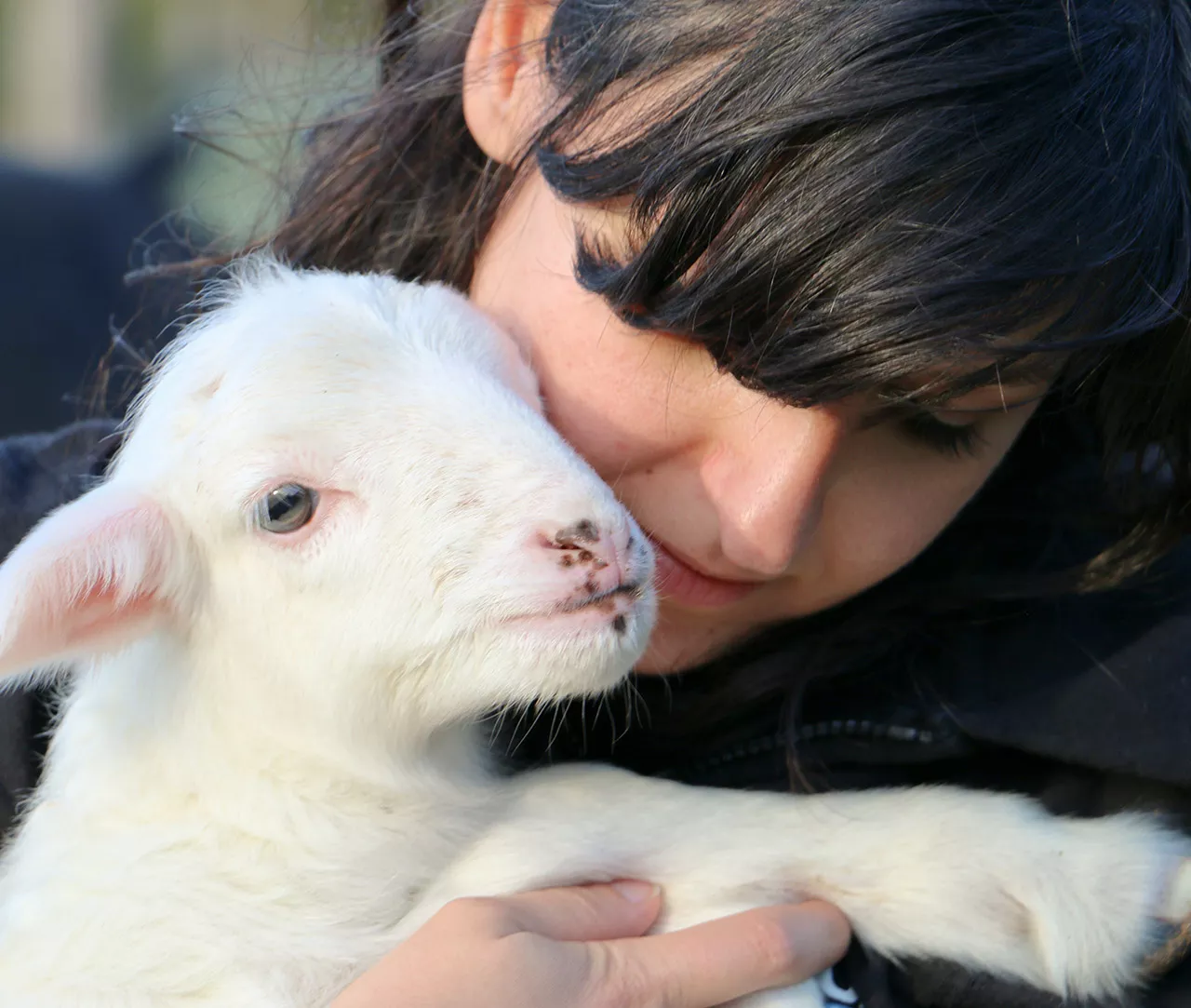
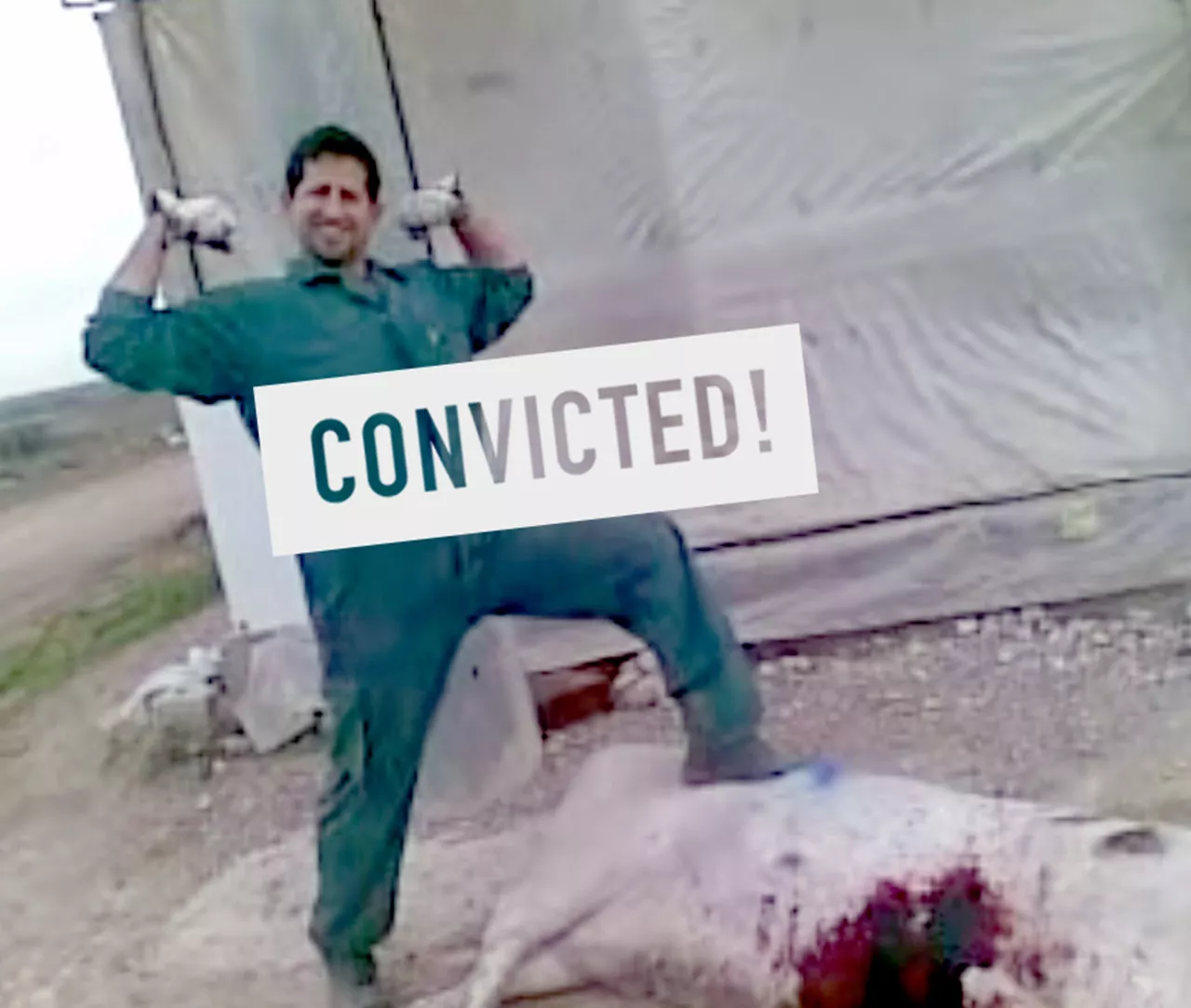
Spain
El Escobar sentence
In Spain, after a shocking investigation by Animal Equality, we helped secure the first-ever conviction for cruelty to farmed animals.
WHAT CAN I DO TO HELP?
BECOME AN ANIMAL PROTECTOR
Animal Equality’s dedicated community that works around the country, helping us share the stories of animals in need!
Participate in demonstrations, hand out leaflets, and organize iAnimal screenings – your support for Animal Equality helps create a kinder world for animals.
